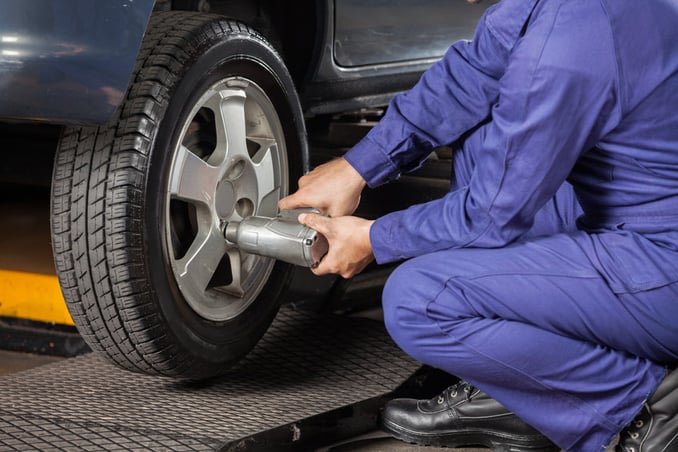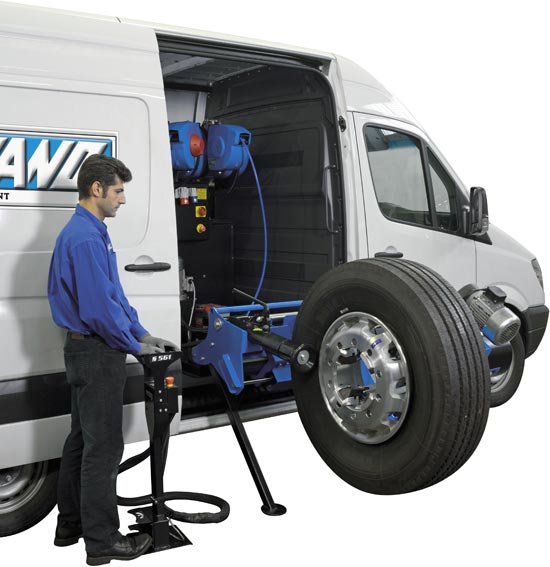Obtain Road-Ready with Specialist GMC Tires Service at Morris Tires
Obtain Road-Ready with Specialist GMC Tires Service at Morris Tires
Blog Article
Tire Solution: The Effect of Climate Conditions
When it concerns making sure optimal performance and security on the road, recognizing the impact of climate conditions on tire solution is important. From scorching heat to icy roads, each climate component can significantly influence tire capability and total driving experience. By diving into the results of varying climate condition on tires, chauffeurs can get valuable insights that may enhance their automobile's performance and long life. In this discussion, we will certainly explore the elaborate connection in between climate condition and tire service, clarifying the importance of weather-specific tire upkeep techniques and factors to consider.
Warmth and Tire Performance
When subjected to heats, tires experience modifications in efficiency that can considerably influence lorry safety and handling. The heat produced from extended driving or warm climate problems triggers the tire rubber to soften, resulting in minimized walk life and increased wear. As the rubber ends up being softer, the tire's grasp when traveling reduces, affecting braking distances and total traction. In extreme instances, too much warm can even cause tire blowouts, presenting an extreme security danger to the automobile and its occupants.

Cold Climate Effects
Winter problems can have a considerable influence on tire performance and safety. As temperatures decrease, tire rubber can harden, resulting in decreased traction on icy or snow-covered roadways. In chilly climate, tires might additionally lose atmospheric pressure extra rapidly, which can impact dealing with and gas performance. Furthermore, cold temperature levels can cause tire sidewalls to stiffen, increasing the threat of damages from splits or other roadway hazards.
To mitigate the results of cool weather condition on tires, it is vital to frequently examine tire stress and inflate them to the manufacturer's recommended levels. Making use of winter season or all-season tires made for cool climate problems can also boost traction and hold on icy or snowy roads. Proper tire upkeep, including normal inspections for wear and damages, becomes a lot more crucial during colder months to make sure optimal performance and safety.
Rainy Issues Influence
Tires with damaged footsteps are much more vulnerable to hydroplaning, where a layer of water builds up between the tire and the road surface area, leading to loss of traction. To battle this, vehicle drivers should consistently examine their tires for ample step deepness and take into consideration investing in tires particularly designed for damp problems.
Furthermore, rainy weather can likewise decrease visibility, making it testing for drivers to see the roadway in advance plainly (GMC Tire Service). In such problems, it is important to readjust driving rates appropriately and preserve a secure following distance to permit unexpected quits. Appropriately filled with air tires can likewise assist in preserving control on damp roads by providing much better handling and hold
Snow and Tire Safety And Security
Snow-covered roads posture one-of-a-kind obstacles for chauffeurs, highlighting the importance of proper tire choice and maintenance. When driving in snowy problems, having the appropriate tires can make a substantial distinction in safety and security and performance. Winter months tires are made with unique rubber substances and walk patterns to supply far better grip on snow and ice compared to all-season tires. The much deeper footsteps and sipes of winter season tires help grip the roadway much better, lowering the risk of sliding and sliding.

Moreover, motorists should consider installing tire chains in severe snowy problems. Tire chains provide extra traction by grasping the snow and ice, boosting stability and control. It is vital to follow supplier instructions when utilizing and installing tire chains to prevent damages to the tires and car (GMC Tire Service). By choosing the appropriate tires, preserving appropriate rising cost of living, and thinking about additional traction aids like tire chains, vehicle drivers can boost their safety when browsing snow-covered roadways.
Weather-Related Tire Upkeep
When confronted with numerous climate condition, correct tire maintenance ends up being a critical aspect of lorry safety and security and performance. Weather-related tire upkeep incorporates a variety of methods targeted at making sure optimal tire function and long life in various climate situations. One vital aspect of weather-related tire maintenance is tire pressure policy. Changing temperature levels can cause tire stress to differ, influencing traction and fuel efficiency. On a regular basis inspecting and adjusting tire pressure according to manufacturer suggestions is essential for safe driving in changing weather. Additionally, tire tread deepness plays a significant duty in handling different weather elements. Tires with ample walk depth give better hold on wet or icy roadways, lowering the threat of skidding or hydroplaning. look here When step wear gets to a particular deepness is vital for maintaining traction and stability in negative climate, inspecting tire walk routinely and changing tires. By focusing on weather-related tire maintenance, drivers can enhance security, improve lorry performance, and lengthen the life-span of their tires.
Verdict
In final thought, climate condition have a substantial influence on tire performance and security. From heat impacting tire pressure and use to cool climate minimizing traction, it is important to take into consideration the weather condition when preserving and utilizing tires. Stormy problems can reduce hold and cause hydroplaning, while snow can increase the threat of crashes if tires are not effectively geared up. Weather-related tire upkeep is important in ensuring optimal performance and security when traveling.
In this conversation, we will certainly check out the elaborate connection between weather problems and tire service, shedding light on the significance of weather-specific tire upkeep methods and factors to consider.

Report this page